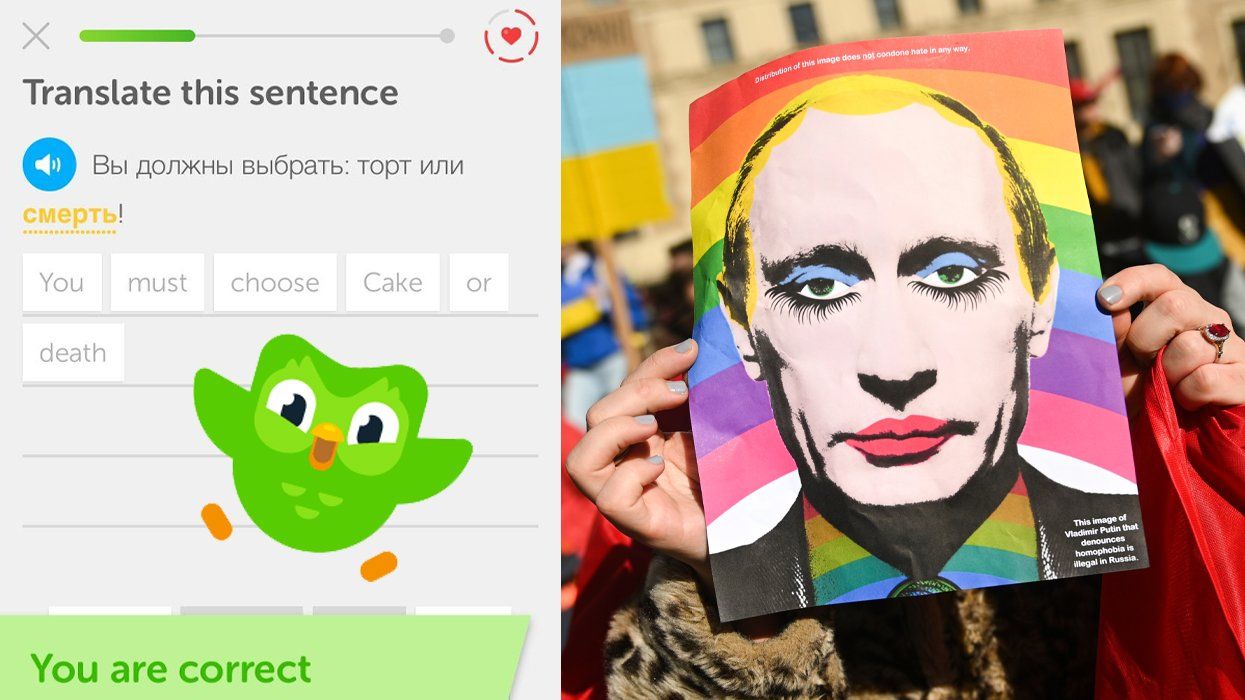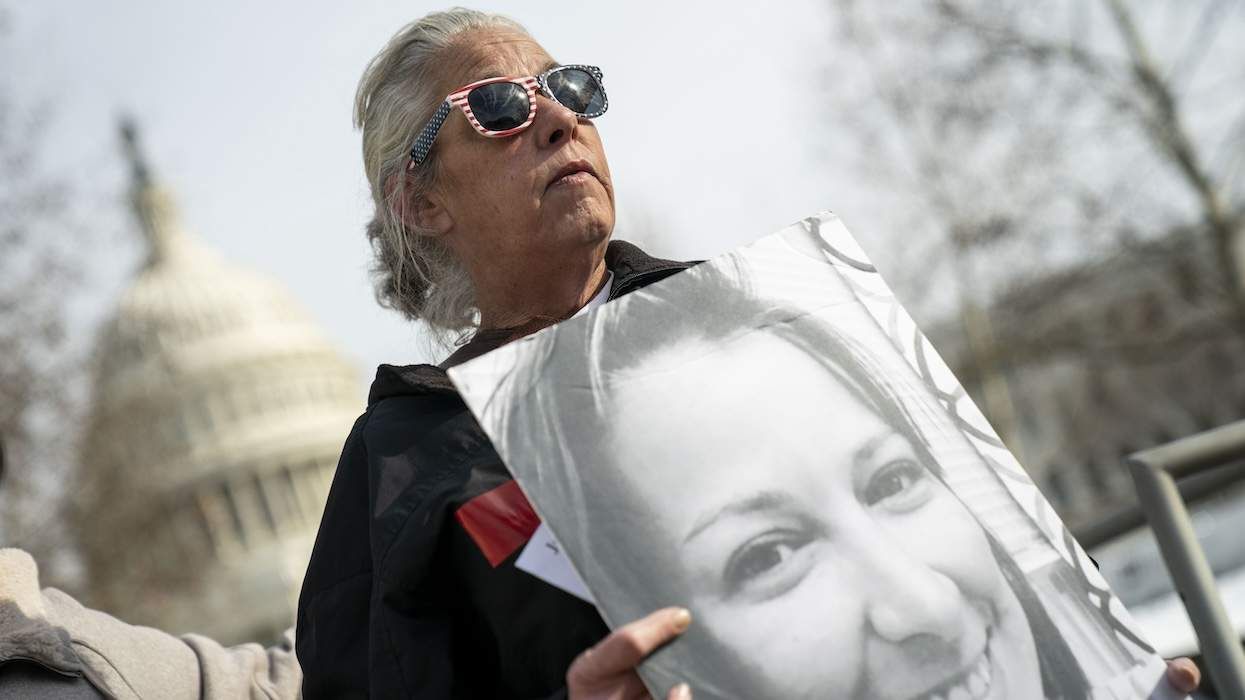The extremist Russian government has targeted a top instructional app for its inclusion of LGBTQ+ characters. Duolingo, the popular language learning application, is under investigation by Roskomnadzor (RKN), Russia’s media regulatory authority, according to Russian media outlet Meduza.
The crux of the investigation lies in allegations against Duolingo for purportedly disseminating “LGBT propaganda” through the inclusion of LGBTQ+ references in its educational materials. Radetel, an organization based in Novosibirsk, initially raised these allegations, which claim to defend “public morality, culture, and traditional values,” The Jerusalem Post reports.
The situation unfolds against the backdrop of Russia’s stringent anti-LGBTQ+ laws, which have, since 2013, aimed to censor what is considered “LGBTQ+ propaganda” and, as of 2023, have banned gender-affirming procedures. The investigation highlights the broader implications of Russia’s censorship efforts, particularly their impact on international companies and educational platforms.
Russia recently has cracked down even further on LGBTQ+ rights, labeling LGBTQ+ rights movements as "extremists."
Related: Russia outlaws LGBTQ+ rights activism and labels organizations 'extremist'
Duolingo has been a beacon of inclusivity, offering lessons in more than 40 languages to a global user base of over 60 million. The company has openly embraced the representation of LGBTQ+ characters and narratives within its lessons, aiming to present these in everyday contexts. The company has said that this commitment to diversity and representation aligns with Duolingo’s broader educational mission to accommodate and reflect the experiences of a diverse and global audience.
A 2021 blog post on Duolingo’s website sheds light on the company’s intentional efforts to incorporate LGBTQ+ representation in developing its characters and stories. Highlighting the importance of diversity and representation, the post notes that Duolingo’s vast and varied audience necessitates content that is relatable to all learners, including those from the LGBTQ+ community. The post introduces characters such as Lin, Bea, and Oscar, who are part of Duolingo’s queer representation, each with their unique backgrounds and stories that contribute to normalizing LGBTQ+ life in an unsensationalized manner.
These efforts by Duolingo to include LGBTQ+ characters and stories, as described in the blog post, underscore the company’s dedication to fostering an environment of understanding and acceptance. By presenting LGBTQ+ life as a regular aspect of human experience, Duolingo challenges stereotypes and promotes a more inclusive society.





































































Charlie Kirk DID say stoning gay people was the 'perfect law' — and these other heinous quotes